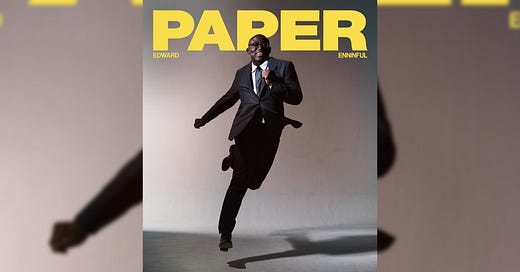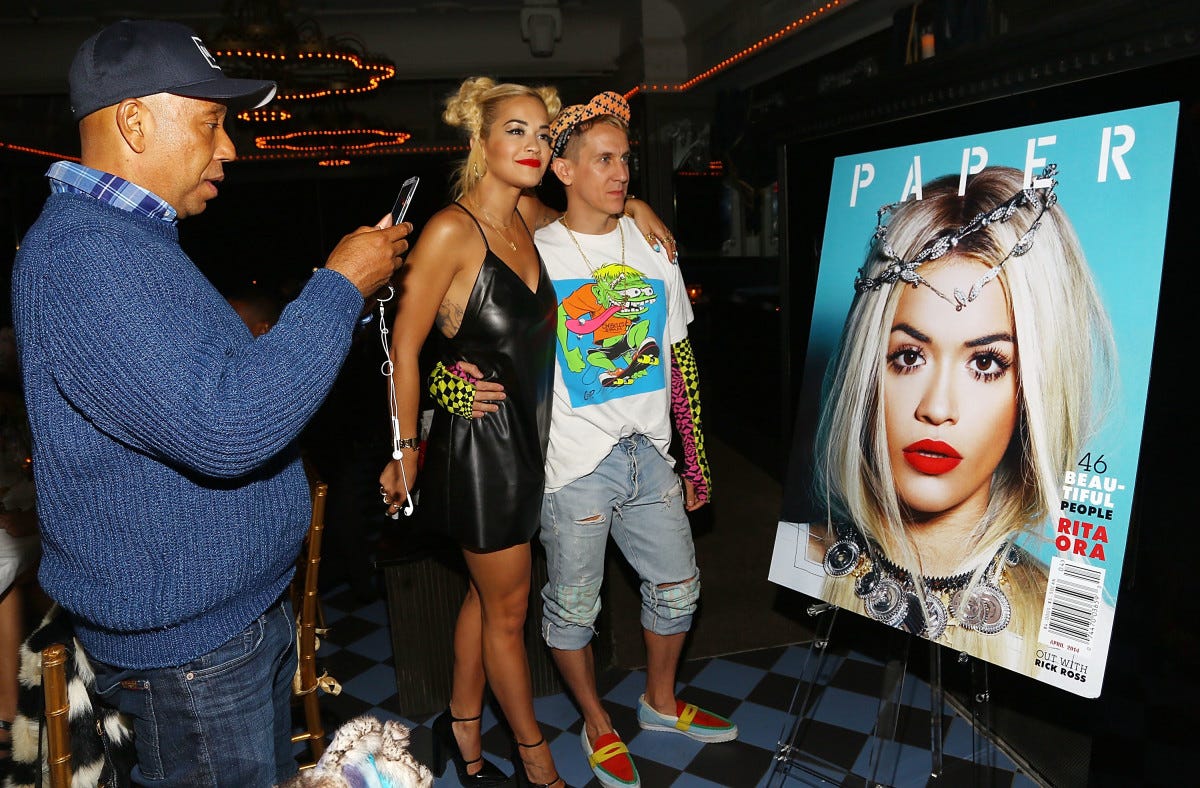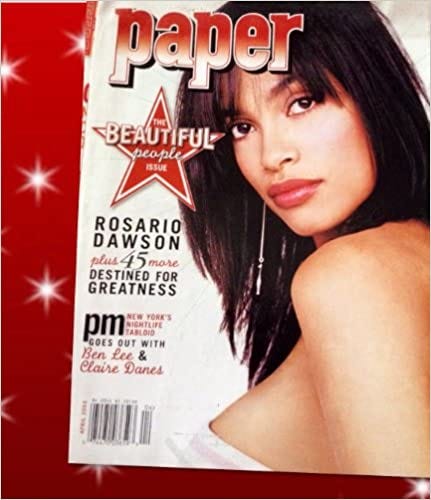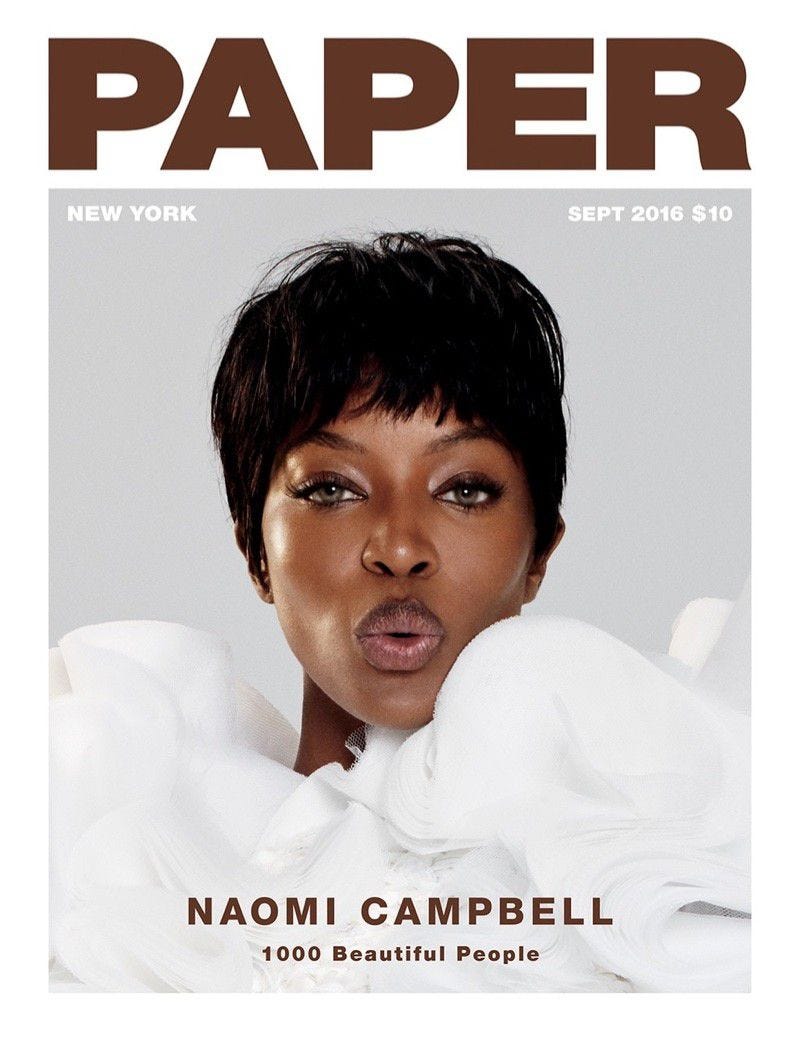Even as late as the late 90s the magazine industry in New York City was blindingly white. Just exceedingly, obnoxiously, aggressively white. Tucker Carlson would have had no problems with the state of the magazine publishing industry in New York City during the late 90s, cough-cough, lets just put it that way.
I had just come off an internship at The Nation, where the late, great Christopher Hitchens was my mentor. Hitchens was a Contributing Writer at Vanity Fair, one of the flagships of Conde Nast, where every writer worth his or her salt in the gritty city wanted to write. Because I worked closely with Christopher and had his recommendation I got an interview at Conde Nast — very rare, even in those days, for someone so otherwise unconnected.
The interview went nowhere. Of course it went nowhere. It was a formality of respect to Hitchens and his outsize role at the company. Conde Nast, in those days, did not hire African-Americans. How many people of color were on the Conde Nast masthead from the 80s into the 90s? One? Two? And how many had bylines?
Most writers of color of that point in time have Conde Nast horror stories. You want to write for the most prestigious magazines, obviously, but the most prestigious magazines just will not hire you … Andre Leon Talley himself — a six foot six African-American man — would have never, ever have made it past Conde Nast Human Resources (he, in fact, leapfrogged the process as head of Anna Wintour’s court). Conde Nast didn’t even really hire white people that were not “connected,” or “pedigreed,” so what chance did an African-American man have, other than, of course, the recommendation of one of their most famous writers. Since then, they have had their “reckoning,” but that’s neither here nor there. Good riddance to those days of gloss past.
But there were lights in the darkness of that era of gloss past. PAPER magazine, a scrappy downtown glossy covering the art and fashion scene founded in 1984, was one such light. Far ahead of its time, PAPER was doing multicultural cover stories, pro-sex, pro-gay, feminist articles championing the unheralded with a taste that can only be properly construed under the category of exquisite. And now, we are all PAPER.
PAPER was famous for giving so many writers — and independent stars — their starts. Jason Calacanis. Peter Davis. Alex Kuczynski. And getting a PAPER cover — for fashion designers, for starlets, for singers — was considered a serious deal. It meant that one had the attention of the tastemakers. Further, PAPER was also known for not giving a damn about sex, gender, race or any other qualifier other than one’s interestingness. PAPER, in over 30 years, probably discovered more rising stars in the creative economy than any other publication during the span of its publishing life.
Papermag.com was one of the pioneers of online forums in the late 90s. And Kim and David — the co-editors and publishers — noticed my online rants and invited me into the office, where I met Mickey Boardman and an assortment of culturally sophisticated pop cultural pioneers, many of whom I am friends with to this day. There began then and there a beautiful and gratifying love affair with the magazine, with the parties and their online presence. I felt seen at a time when I seriously worried about how I could make a noble life in publishing without Conde Nast as a possibility. And as I grew as a writer and an online presence, I never forgot where I gained my confidence and deepened my voice. Years afterwards, people admitted to me that they first read my writing at those old Papermag.com forums.
And that’s why it is just so damned stunning that PAPER is no more. The staff layoffs yesterday, out of nowhere, reminded me of the old Charlie Brown line “how can we lose when we are so sincere?” Because PAPER magazine was not just sincere, it was anti-racist, and anti-homophobe and anti-sexist before all of those concepts were fashionable. Its governing philosophy aligned so perfectly with each successive generation, it seemed incapable of failure — only growth. The future was on our side. PAPER was so far ahead of its time that even an old, bigoted institution like Conde Nast had to come around to its value set.
But the economic headwinds were too vicious, particularly in media, which is usually the canary in the coal mine of the economy. If Buzzfeed couldn’t stand up straight, then how could PAPER. And so, just shy of its 40th birthday, we say goodbye to PAPER, the edgiest, most dazzling of the downtown magazines. The era of glossy magazines has truly passed. Farewell, and rest in power and thank you for giving this surly, opinionated African-American writer — and many other outsiders in the New York media industry — a chance. A voice. A platform. An office to kick things (Remember the PAPER office in SoHo over that sketch tanning salon?).
You will be remembered fondly, always, PAPER, by us who you elevated a bit and to any who want to listen to our stories of the good old days.
Basta.
South Africa scrambles to avert Putin arrest headache (semafor)
Pushing Seoul into engagement with Pyongyang is hard but vital. (Foreign Policy)
A new report inadvertently sheds light on the extent of North Korea’s COVID-19 quarantine measures – and their impact on its sanctions evasion efforts. (The Diplomat)
“While Biden isn’t spending hours in his private dining room glued to a big screen as his predecessor was, several current and former White House officials told me that the president will keep an eye on his secret screen behind his desk and react to coverage during less formal meetings with staff.” (Politico)
Jerry Springer dies at 79. (THR)







